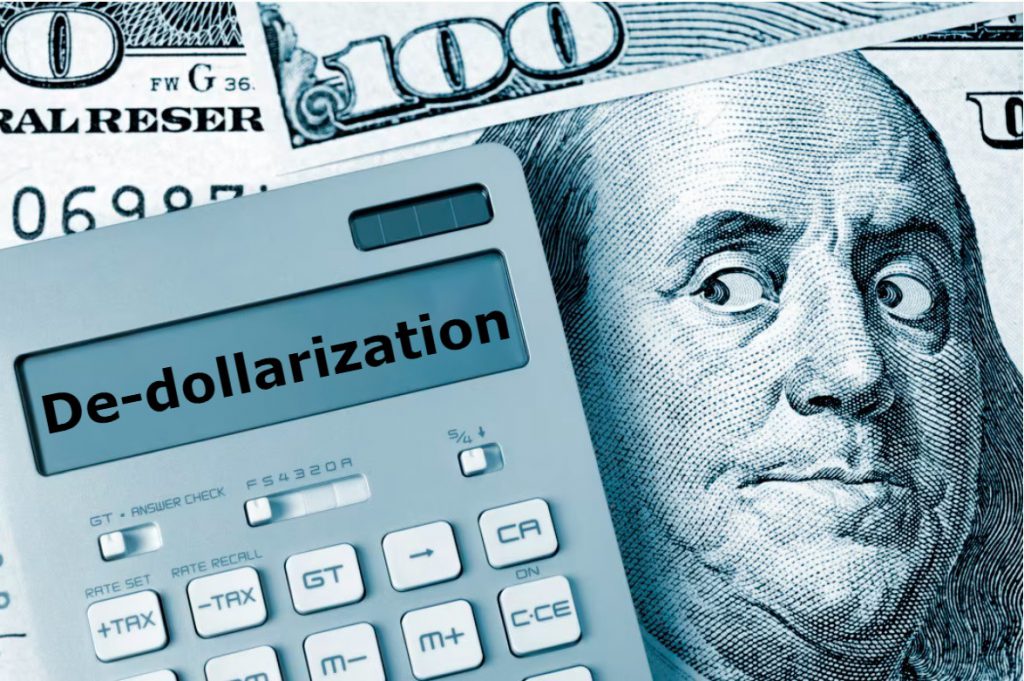The BRICS alliance is no longer attaching importance to the US dollar and is giving strong prominence to local currencies. The Chinese yuan, Indian rupee, and the Russian ruble have been used to settle cross-border transactions since 2022. The de-dollarization agenda is advancing rapidly and many other developing countries are now looking to use local currencies for trade.
Read here to know how many sectors in the US will be affected if BRICS ditches the dollar for trade. Local currencies are looking to dethrone the US dollar from the world’s reserve and usher global finances into a new era.
Also Read: 2 New Countries Get Invited To Attend BRICS 2024 Summit
BRICS: We Are No Longer Attaching Importance to the US Dollar, Says Indian Diplomat


The Vice Chairman of BRICS Chamber of Commerce and Industry, Sameep Shastri confirmed that developing countries are no longer giving importance to the US dollar. Shastri revealed that the world will soon realize the power of de-dollarization and will accept the new reality wholeheartedly. He added that the development benefits developing nations and increases their GDP, production, and businesses, among others.
Also Read: BRICS: U.S. Dollar in World Reserves Fall Below 60%
“I think we are going to see de-dollarization soon. We (BRICS) have already started our trade using rubles and rupee and yuan and rupee, our own currencies, and we do not attach much value to the US dollar anymore. And I think that is important for each and every country that we should not be dependent on one single currency. We should be dependent on our own currency, and we should make it strong and make our economy strong,” he said.
Also Read: BRICS: 2 New Countries Start Buying Oil From Iran, Ditch the US
The strong words used by the diplomat indicate that BRICS is serious about de-dollarization. The US dollar could be in jeopardy if BRICS begins convincing other developing nations to follow the de-dollarization ideals. The next decade could decide if the US dollar will reign supreme or fall prey to the de-dollarization agenda.





